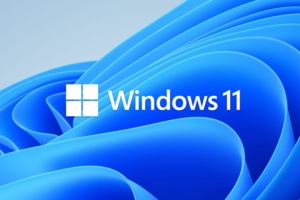Be Ready for 3 Things in 2025
 As we head into the new year, we face an uncertain business landscape. Politics, the economy, and technology advances create new tech-related challenges and opportunities. As you make your plans, be ready for these 3 things in 2025.
As we head into the new year, we face an uncertain business landscape. Politics, the economy, and technology advances create new tech-related challenges and opportunities. As you make your plans, be ready for these 3 things in 2025.
Windows 10 End of Life
Windows 10 reaches its end-of-life on October 14, 2025. As of this date, Microsoft will stop releasing new features, free security updates, and support. You must decide when and how you will transition to Windows 11.
Staying on Windows 10 without subscribing to the Extended Security Updates (ESU) program exposes your systems to increased vulnerabilities, potentially impacting compliance with cybersecurity regulations.
While many devices currently running Windows 10 can support Windows 11, older machines may struggle with performance due to inadequate resources. You should expect to invest in some new hardware or upgrade existing components, such as memory, to ensure smooth operation. Given the anticipated surge in demand for new devices, early planning and procurement can mitigate potential cost hikes and supply chain delays.
More Info:
- Prepare for Windows 10 End of Life and Windows 11 (Blog Post)
- Windows 10 End of Life (Coffee & Clouds Webcast)
AI in 2025: From Hype to Practical Applications
The realm of artificial intelligence (AI) is poised to transition from theoretical enthusiasm to practical implementation. 2025 is the time to focus on AI’s tangible benefits, such as enhancing employee productivity and streamlining customer interactions. Rather than replacing human labor, use AI as a tool for augmenting capabilities and achieving efficiency gains.
Security remains a critical consideration as AI becomes more integrated into your business processes. Protecting your sensitive data and ensuring your compliance with regulatory standards is paramount, especially when using AI tools within Microsoft 365 or Google Workspace.
Assess the cost-effectiveness of AI investments, ensuring they provide a clear return on investment without duplicating existing capabilities. As AI tools continue to evolve, balance cost, security, and practicality to leverage AI effectively.
Resources:
Heightened Security and Evolving Threat Landscape
In an era where cybersecurity threats are ever-evolving, small businesses like yours should adopt a robust security framework to safeguard your operations. A comprehensive approach—encompassing communication, prevention, and recovery—is critical as new threats emerge. With incidents like business email compromise posing significant financial risks, maintaining a strong security posture is non-negotiable.
For smaller businesses, Resilience becomes a key focus of your cybersecurity strategy. Ensuring your operational continuity, even during cyber incidents, is crucial for minimizing disruptions. Resilience is not only protecting data but also enabling swift recovery and business continuity.
As cyber insurance requirements become more stringent, Compliance with evolving security benchmarks and standards will increase coverage and lower premiums. The savings is a bonus to improved protections against potential threats. Penetration testing, or Pen Testing, can be an affordable way to benchmark and track your security profile against relevant industry and regulatory standards.
Dive Deep:
- PC Continuity Means Business Continuity (Blog)
- Business Email Compromise: The Second Costliest Crime (Blog)
- Cyber Security Requirements for Cyber Insurance (eBook)
- FBI 2023 Internet Crime Report (FBI Whitepaper)
- Pen Test Primer: Security for Small Businesses (eBook)
Your Next Steps
If you are interested in planning your Windows 10 to Windows 11 upgrade, your use of AI, or your security improvements, book a free, no-obligation session with one of our Cloud Advisors. Or, send us a quick note and let us know how we can help.
About the Author
 Allen Falcon is the co-founder and CEO of Cumulus Global. Allen co-founded Cumulus Global in 2006 to offer small businesses enterprise-grade email security and compliance using emerging cloud solutions. He has led the company’s growth into a managed cloud service provider with over 1,000 customers throughout North America. Starting his first business at age 12, Allen is a serial entrepreneur. He has launched strategic IT consulting, software, and service companies. An advocate for small and midsize businesses, Allen served on the board of the former Smaller Business Association of New England, local economic development committees, and industry advisory boards.
Allen Falcon is the co-founder and CEO of Cumulus Global. Allen co-founded Cumulus Global in 2006 to offer small businesses enterprise-grade email security and compliance using emerging cloud solutions. He has led the company’s growth into a managed cloud service provider with over 1,000 customers throughout North America. Starting his first business at age 12, Allen is a serial entrepreneur. He has launched strategic IT consulting, software, and service companies. An advocate for small and midsize businesses, Allen served on the board of the former Smaller Business Association of New England, local economic development committees, and industry advisory boards.
* Discount RSA offer requests must be received prior to 3:00 PM EST on Dec. 31, 2024.


 In today’s fast-paced business world, the ability to maintain continuous PC operations is crucial for your business. With limited resources and manpower, you cannot afford to lose data or prolonged downtime.
In today’s fast-paced business world, the ability to maintain continuous PC operations is crucial for your business. With limited resources and manpower, you cannot afford to lose data or prolonged downtime. 

 A Guide: From Windows 10 End of Life to Windows 11
A Guide: From Windows 10 End of Life to Windows 11
